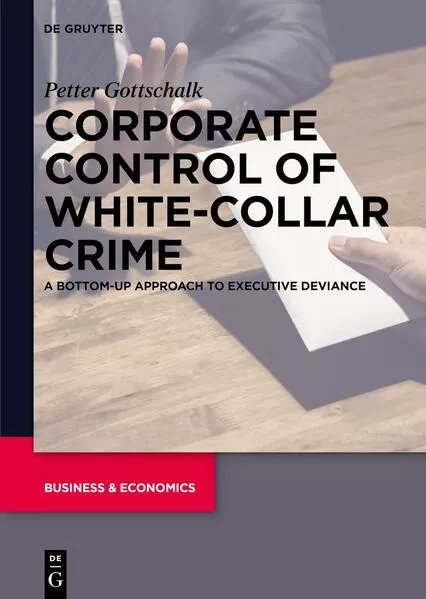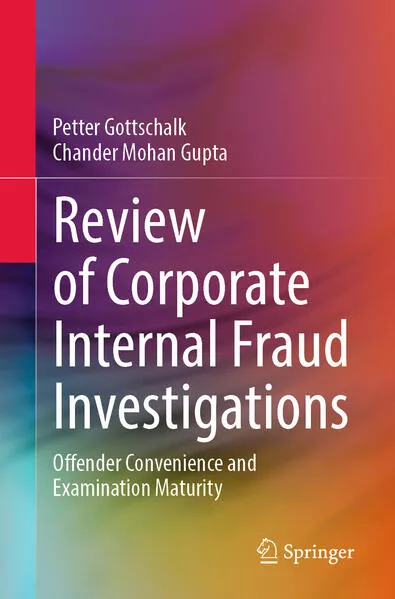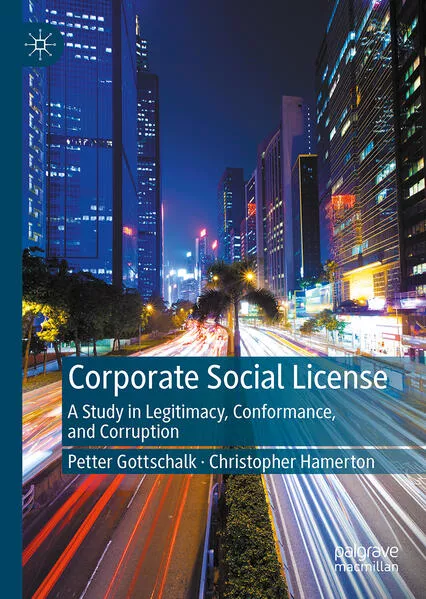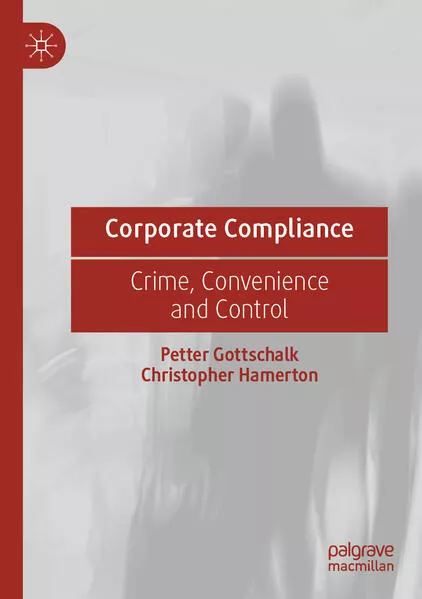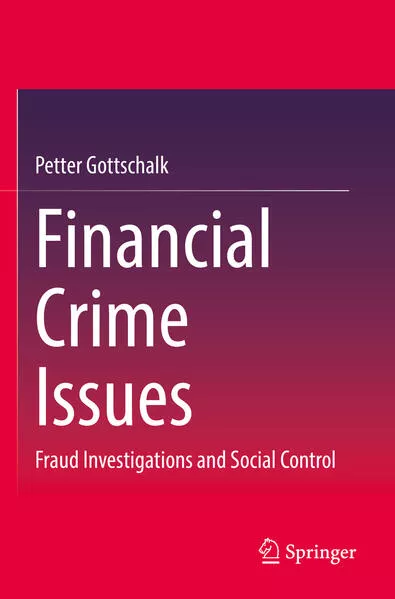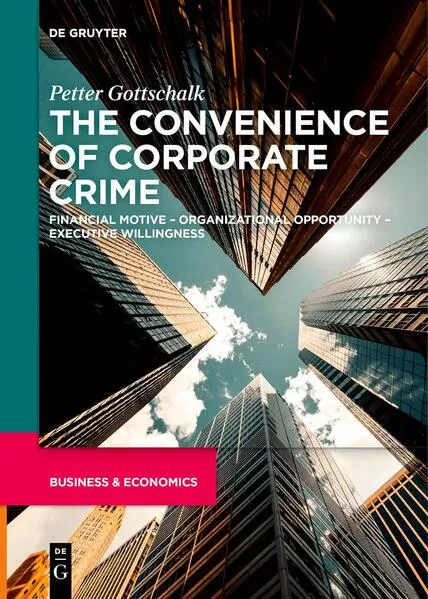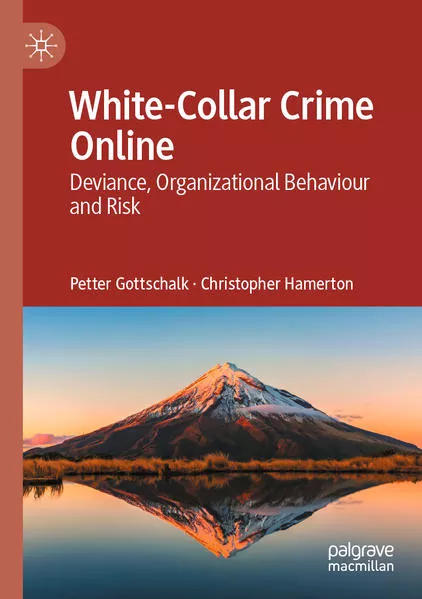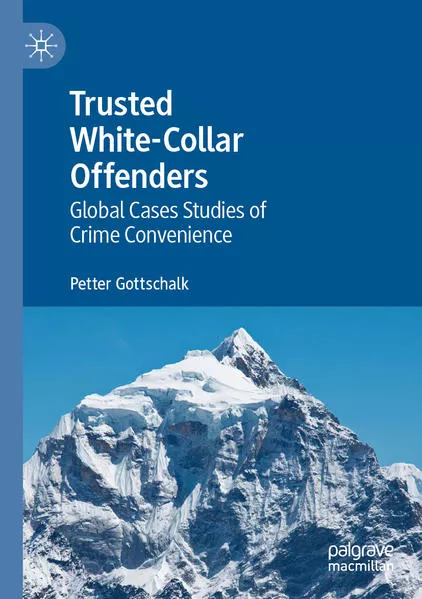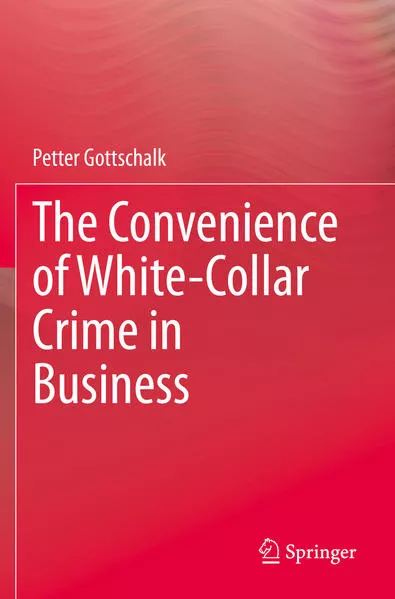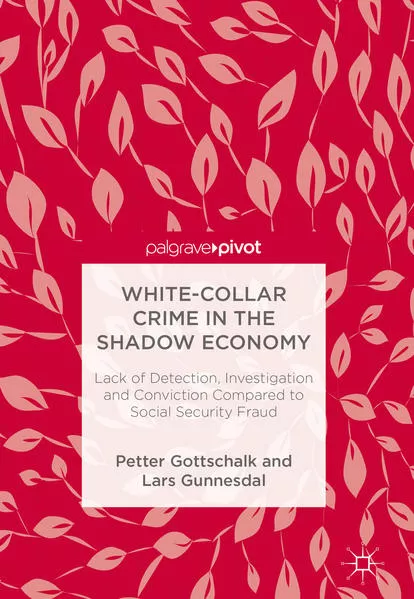
- Publikationen ca: 27
- Buchbewertungen ca: 24
- Fragen & Antworten
Petter Gottschalk
Petter Gottschalk is Professor of Information Systems and Knowledge Management at BI Norwegian Business School, Norway. He is the author of over 20 books on the topic of white-collar crime and knowledge management. He has served as CEO of Norwegian Computing Center, ABB Datakabel, Statens kantiner, and Norsk Informasjonsteknologi (NIT). He has lectured on criminal entrepreneurship, organised crime, and knowledge management at the Norwegian Police University College in Oslo, where his books on criminal organisations and police intelligence processes are used as text books. Dr. Gottschalk did his MBA in Germany (Technical University of Berlin), MSc in the United States (Dartmouth College and MIT), and DBA in the United Kingdom (Henley Management College, Brunel University). He has taught in Singapore; at Fudan University, China; and at the Arab Academy for Science, Technology, and Maritime Transport, Egypt. His studies on crime and policing is published extensively in international resea
Corporate Control of White-Collar Crime
Traditionally, corporate control is all about top-down approaches to management of employees. Executives attempt to influence employees toward achieving business goals, and they attempt to prevent and detect wrongdoing, misconduct, and crime among employees.
Review of Corporate Internal Fraud Investigations
This book discusses the role of whistleblowing in the detection of white-collar crime through examination of publicly available internal investigation reports and evaluation of allegations and suspicions of potential misconduct. The analysis focuses on offender convenience, considering factors such as motive, opportunity, and willingness to engage in deviant behavior.
Review of Corporate Internal Fraud Investigations
This book discusses the role of whistleblowing in the detection of white-collar crime through examination of publicly available internal investigation reports and evaluation of allegations and suspicions of potential misconduct. The analysis focuses on offender convenience, considering factors such as motive, opportunity, and willingness to engage in deviant behavior.
Corporate Social License
This book makes a distinctive and innovative contribution to the study of white-collar and corporate crime through detailed examination of the use, affect, and violation of the corporate social license – a concept frequently extended to a license to operate.
Corporate Compliance
Compliance has long been identified by scholars of white-collar crime as a key strategic control device in the regulation of corporations and complex organisations. Nevertheless, this essential process has been largely ignored within criminology as a specific subject for close scrutiny – Corporate Compliance: Crime, Convenience and Control seeks to address this anomaly.
Corporate Social License
This book makes a distinctive and innovative contribution to the study of white-collar and corporate crime through detailed examination of the use, affect, and violation of the corporate social license – a concept frequently extended to a license to operate.
Financial Crime Issues
This volume looks at the emerging perspective to the social license and white-collar and corporate crime in criminal justice. While most scholarship explains the frequent lack of police involvement, prosecution, and punishment through various theoretical perspectives that reflect the legal license to operate, the social license to operate illustrates punishment of violations that can cause termination of executives, market loss, and other serious harm to individuals and firms.
The Convenience of Corporate Crime
As documented in a number of case studies (from Telia Telecom in Sweden to Wirecard in Germany) in this book, recidivism seems to be of a substantial magnitude in corporate crime. Corporations tend to repeat white-collar offenses such as financial crime and environmental crime in various forms as long as they find it convenient.
Corporate Compliance
Compliance has long been identified by scholars of white-collar crime as a key strategic control device in the regulation of corporations and complex organisations. Nevertheless, this essential process has been largely ignored within criminology as a specific subject for close scrutiny – Corporate Compliance: Crime, Convenience and Control seeks to address this anomaly.
Corporate Compliance
Compliance has long been identified by scholars of white-collar crime as a key strategic control device in the regulation of corporations and complex organisations. Nevertheless, this essential process has been largely ignored within criminology as a specific subject for close scrutiny – Corporate Compliance: Crime, Convenience and Control seeks to address this anomaly.
White-Collar Crime Online
This initiating monograph provides the first thorough examination of the concept of white-collar crime online. Applying an offender-based perspective which considers the central role of convenience, it seeks to inform, improve and develop the current literature on cybercrime, whilst paying particular attention to its founding category within criminology.
Corporate Control of White-Collar Crime
Traditionally, corporate control is all about top-down approaches to management of employees. Executives attempt to influence employees toward achieving business goals, and they attempt to prevent and detect wrongdoing, misconduct, and crime among employees.
Corporate Control of White-Collar Crime
Traditionally, corporate control is all about top-down approaches to management of employees. Executives attempt to influence employees toward achieving business goals, and they attempt to prevent and detect wrongdoing, misconduct, and crime among employees.
Corporate Control of White-Collar Crime
Traditionally, corporate control is all about top-down approaches to management of employees. Executives attempt to influence employees toward achieving business goals, and they attempt to prevent and detect wrongdoing, misconduct, and crime among employees.
Financial Crime Issues
This volume looks at the emerging perspective to the social license and white-collar and corporate crime in criminal justice. While most scholarship explains the frequent lack of police involvement, prosecution, and punishment through various theoretical perspectives that reflect the legal license to operate, the social license to operate illustrates punishment of violations that can cause termination of executives, market loss, and other serious harm to individuals and firms.
Financial Crime Issues
This volume looks at the emerging perspective to the social license and white-collar and corporate crime in criminal justice. While most scholarship explains the frequent lack of police involvement, prosecution, and punishment through various theoretical perspectives that reflect the legal license to operate, the social license to operate illustrates punishment of violations that can cause termination of executives, market loss, and other serious harm to individuals and firms.
Detecting and Investigating Environmental Crime
This book discusses environmental crime and individual wrongdoing. It uses the theory of convenience throughout to examine financial motives, attractive opportunities, and personal willingness to explain deviant behavior. This book focusses primarily on the case study of the Island of Tjøme in Norway, an attractive resort where building permits were repeatedly granted to rich people in a protected zone along the shoreline.
Trusted White-Collar Offenders
This book uses global case studies of white-collar crime to examine offenders in top business positions and their motives. Drawing on the theory of convenience, this book opens up new perspectives of white-collar offenders in terms of their financial motives, their professional opportunities, and their personal willingness for deviant behaviour.
The Convenience of Corporate Crime
As documented in a number of case studies (from Telia Telecom in Sweden to Wirecard in Germany) in this book, recidivism seems to be of a substantial magnitude in corporate crime. Corporations tend to repeat white-collar offenses such as financial crime and environmental crime in various forms as long as they find it convenient.
The Convenience of Corporate Crime
As documented in a number of case studies (from Telia Telecom in Sweden to Wirecard in Germany) in this book, recidivism seems to be of a substantial magnitude in corporate crime. Corporations tend to repeat white-collar offenses such as financial crime and environmental crime in various forms as long as they find it convenient.
The Convenience of Corporate Crime
As documented in a number of case studies (from Telia Telecom in Sweden to Wirecard in Germany) in this book, recidivism seems to be of a substantial magnitude in corporate crime. Corporations tend to repeat white-collar offenses such as financial crime and environmental crime in various forms as long as they find it convenient.
White-Collar Crime Online
This initiating monograph provides the first thorough examination of the concept of white-collar crime online. Applying an offender-based perspective which considers the central role of convenience, it seeks to inform, improve and develop the current literature on cybercrime, whilst paying particular attention to its founding category within criminology.
White-Collar Crime Online
This initiating monograph provides the first thorough examination of the concept of white-collar crime online. Applying an offender-based perspective which considers the central role of convenience, it seeks to inform, improve and develop the current literature on cybercrime, whilst paying particular attention to its founding category within criminology.
Detecting and Investigating Environmental Crime
This book discusses environmental crime and individual wrongdoing. It uses the theory of convenience throughout to examine financial motives, attractive opportunities, and personal willingness to explain deviant behavior. This book focusses primarily on the case study of the Island of Tjøme in Norway, an attractive resort where building permits were repeatedly granted to rich people in a protected zone along the shoreline.
Detecting and Investigating Environmental Crime
This book discusses environmental crime and individual wrongdoing. It uses the theory of convenience throughout to examine financial motives, attractive opportunities, and personal willingness to explain deviant behavior. This book focusses primarily on the case study of the Island of Tjøme in Norway, an attractive resort where building permits were repeatedly granted to rich people in a protected zone along the shoreline.
The Convenience of White-Collar Crime in Business
This book outlines the theory of convenience for white-collar crime to explain what motivates and enables offenders, providing a unique focus on white-collar crime in the business context. The theory of convenience suggests that the extent to which elite members commit and conceal economic crime is dependent on their extent of orientation towards convenience in problematic and attractive situations.
White-Collar Crime in the Shadow Economy
This open access book examines the magnitude, causes of, and reactions to white-collar crime, based on the theories and research of those who have uncovered various forms of white-collar crime. It argues that the offenders who are convicted represent only ‘the tip of the iceberg’ of a much greater problem: because white-collar crime is forced to compete with other kinds of financial crime like social security fraud for police resources and so receives less attention and fewer investigations.
